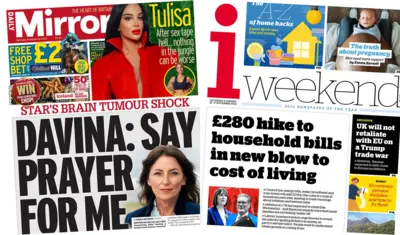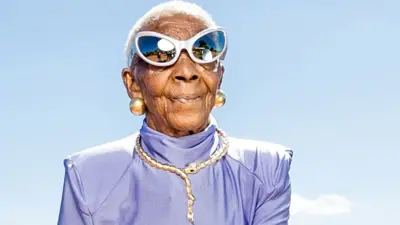We've updated our Privacy and Cookies Policy
We've made some important changes to our Privacy and Cookies Policy and we want you to know what this means for you and your data.
Councils reject two-thirds of requests for care
Image source, SPL
- Author, Nick Triggle
- Role, Health correspondent
Two-thirds of older and disabled people in England who turn to their local councils for help with care are turned away, figures show.
Nearly 1.85 million requests for support were made last year, but just over 650,000 people received help.
Councils have been warning for a number of years that a shortage of funding is causing problems.
But the Health and Social Care Information Centre figures shows how difficult it is for people to get help.
Only 144,000 of the requests for help resulted in long-term care, which includes places in care homes or help in the home for tasks such as washing and dressing.
Nearly 220,000 got short-term help, such as rehabilitation after discharge from hospital, and another 300,000 got low-level support such as walking aids and telecare.
The rest either received nothing or were advised to seek help from charities, the NHS or from housing services.
Unlike the NHS, social care is not free and most people will pay something towards the cost of their care, with some covering the entire cost.
'Alarming picture'
Meanwhile, a separate survey of nearly 70,000 people who did get help revealed their experiences of care.
Some 65% said they were extremely or very satisfied with their care and 26% were quite satisfied, but one in 10 was not.
One in 20 did not feel clean or presentable and the same proportion said they did not always get enough food and drink.
The care system
- Unlike the NHS, social care provided in an individual's home or in residential care is not free. Only the poorest get financial support.
- The number of older and disabled people receiving council help fell by 28% between 2009-10 and 2013-14.
- The Local Government Association predicts if extra money is not put in there will be a shortfall of more than ÂŁ4bn in care services by 2020 - and that is before the implications of the national living wage are taken into account.
- An estimated 1.5 million older people with care needs rely on family and friends for help.
- One in 10 older people faces bills in excess of ÂŁ100,000 over their lifetime for care.
Find out more
Janet Morrison, chief executive of the charity Independent Age, said the figures painted an "alarming picture of services cut back to the bare bones".
"This is a direct result of ÂŁ4.6bn cuts to social care budgets since 2010 and comes despite an ageing population which is increasing the need for these services," she added.
The figures come after a coalition of health and care groups wrote to the Treasury last month warning that the care sector needed to be protected as the "deepening crisis" was putting people in danger.
The government said its spending plans would be revealed in November, but pointed out that a ÂŁ5.4bn fund - the Better Care Fund - had been established in April to ensure NHS money was used for services that support council-organised care.
But Izzi Seccombe, of the Local Government Association, said: "We need to see a change to the current perverse funding system which, over the last five years, has seen an increase in funding for the NHS but a decrease in funding for social care.
"This threatens to leave councils struggling to commission the essential support which keeps people out of hospital and living healthier and happier lives in their communities."
Top Stories
More to explore
Most read
Content is not available








